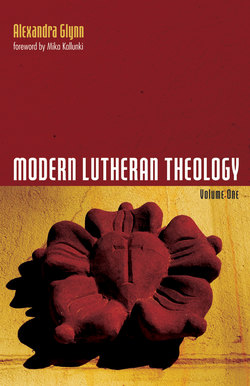Читать книгу Modern Lutheran Theology - Alexandra Glynn - Страница 15
На сайте Литреса книга снята с продажи.
He thinks
ОглавлениеTwo of the worst words in the world are “he thinks.” Now, at times in the Bible, we get told what people are thinking, but this is rare. However, when we do get told in the Bible what someone was thinking, we can take it as true. But unless we get told from a perfect source what someone else is thinking, then how do we know what another person is thinking?
God “declares unto man what man’s thought is” (Amos 4:13). From this text we could even ask—why does a man have to be told by God what that man’s thoughts are? Doesn’t a man know what his own thoughts are? After all, they are in his own head, his own heart. He is the one thinking them. And yet he needs God to declare his own thoughts to him. So we don’t even know what we ourselves think! So how do we, as corrupt humans, know what another person thinks? Or, to use the Hebrew idiom, what another person is speaking in his heart?
Even when the Scripture says, for example, of the heathen, that when they pray, they think they will be heard because of their constant speaking (Matt 6:7)—why do we not be charitable when we look at a heathen and say: I don’t know why that heathen is constantly praying and using vain repetitions? Why don’t we say: maybe he is searching? Or: maybe he doesn’t know any better? For in general, this statement from Scripture is true, that people do use vain repetitions in praying and are not sincere, and they think that they will be heard because of their long speeches. But why are we so sure, in an individual case, with our neighbor, that it applies to our neighbor’s thoughts? Couldn’t he say the same thing about us? And if he did, how would we feel?
He thinks he is better than me. He thinks he can get away with it. He thinks I am stupid. He thinks he is going to be able to make me jealous. It never ends. Why don’t we remember the story about the older brother of the prodigal son? The text says that the younger brother, the prodigal son, went out and wasted his substance in riotous living. But what did the older brother say? He said that the younger brother had spent it all on harlots. So which was it? Riotous living, or harlots? If it was harlots, then how did the older brother know this? And why did he repeat it? And why did he say harlots instead of riotous living? How did he know what the younger brother had been doing in the world? Doesn’t it say more about the temptations and lusts of the older brother than it does about the prodigal son? It seems to me the older brother’s statement about harlots reveals exactly what he wants to do, but doesn’t dare to do out of fear of losing status. Or maybe he does do such things but hides them. Something had gone wrong on the left side in the older brother’s heart, and something also was going wrong on the right side: he could not have a mind of compassion and graciousness towards another human, his own brother.
Let us stop assuming the worst—let’s assume the best. Let’s forgive. “For I know the thoughts that I think towards you, sayeth the Lord, thoughts of peace, and not of evil” (Jer 29:11). All this goodness comes to us from God, even though we have been admonished, and disobeyed these words: “Let none of you imagine evil against his brother in your heart” (Zech 7:10). And God knows how we are. He testifies of us: “Thou sittest and speakest against thy brother; thou slanderest thine own mother’s son” (Ps 50:20). And yet God “hath delivered my soul in peace from the battle that was against me” (Ps 55:18).
